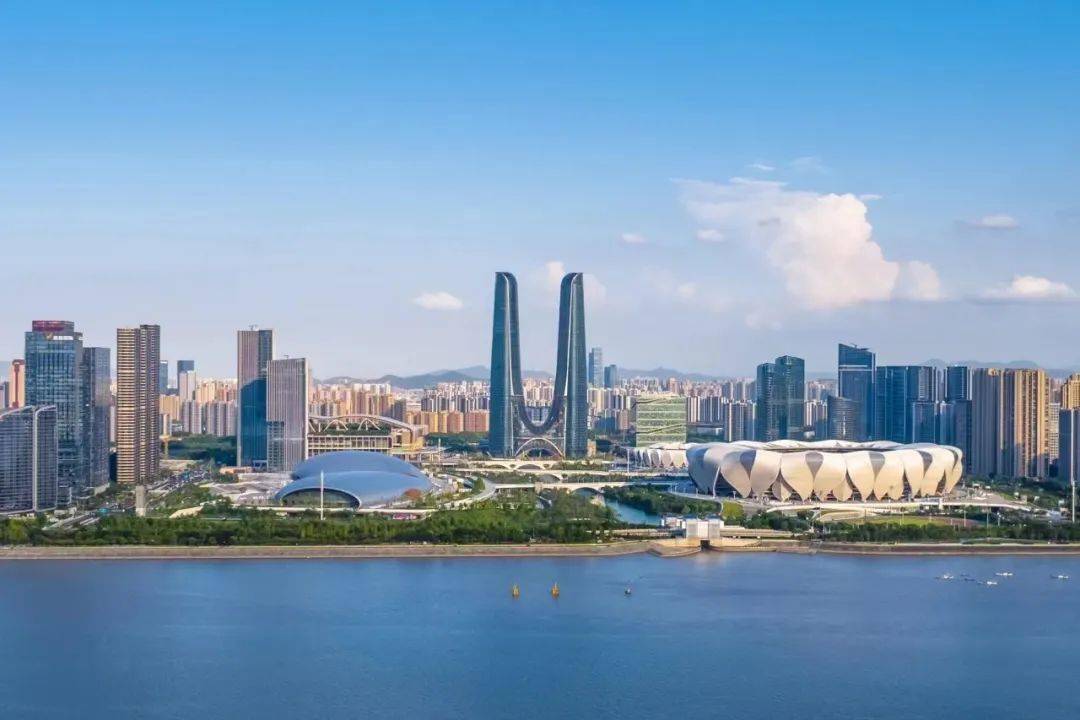Hangzhou: A Timeless Blend of Heritage and Modernity
Nestled in eastern China’s Zhejiang Province, Hangzhou is a city where ancient traditions harmoniously coexist with cutting-edge innovation. Known as the “Paradise on Earth” for its poetic landscapes and rich cultural legacy, this city has captivated travelers and historians alike for centuries. Let’s delve into its urban development, history, must-visit attractions, and culinary delights.
Urban Development: Bridging Past and Future
Hangzhou’s growth exemplifies a seamless fusion of heritage preservation and modern ambition. Once a key hub along the Grand Canal and Qiantang River, the city has evolved into a vital economic and tech powerhouse in the Yangtze River Delta. Its skyline, dotted with futuristic skyscrapers like the “Big Lotus” Olympic Stadium, contrasts beautifully with historic neighborhoods. The city’s development strategy, “City East Expansion, Tourism West Promotion,” aims to transition from the “West Lake era” to the “Qiantang River era,” fostering innovation zones and eco-friendly urban spaces.
History: A Cradle of Civilization
With over 2,200 years of history, Hangzhou served as the capital of the Wuyue Kingdom and the Southern Song Dynasty, earning its title as one of China’s Seven Ancient Capitals. The Liangzhu Culture (5,000 years old), recognized as the “Dawn of Civilization,” left behind intricate jade artifacts and agricultural marvels. Marco Polo once praised it as “the finest and most magnificent city in the world”, a testament to its medieval splendor.
Must-Visit Attractions
- West Lake (西湖): A UNESCO World Heritage Site, this iconic lake inspired poets like Su Shi with its “Ten Scenic Views”, including Spring Dawn at Su Causeway and Autumn Moon over the Calm Lake. Rent a boat or stroll along willow-lined paths to absorb its timeless charm.
- Lingyin Temple (灵隐寺): Founded in the Eastern Jin Dynasty, this Zen Buddhist sanctuary features ancient carvings and serene forests.
- Xixi Wetland (西溪湿地): A tranquil oasis of waterways and biodiversity, perfect for eco-tours.
- Leifeng Pagoda (雷峰塔): Linked to the legend of the White Snake, it offers panoramic lake views.
- Qinghefang Ancient Street (清河坊古街): Wander through Ming-Qing architecture and traditional tea houses.
Gastronomic Delights
Hangzhou’s cuisine, part of Zhejiang culinary tradition, balances delicate flavors and artistry:
- West Lake Fish in Vinegar Gravy (西湖醋鱼): Fresh fish coated in tangy-sweet sauce.
- Dongpo Pork (东坡肉): Braised pork belly named after poet Su Shi.
- Longjing Shrimp (龙井虾仁): Stir-fried shrimp with fragrant Dragon Well tea leaves.
- Beggar’s Chicken (叫花鸡): A folklore-inspired dish roasted in lotus leaves.
- Osmanthus Cake (桂花糕): A floral-scented dessert symbolizing local sweetness.
Don’t miss Hefang Street’s snacks or sipping Longjing tea at a lakeside teahouse.
Conclusion
Hangzhou’s allure lies in its ability to honor its past while embracing the future. Whether you’re tracing the footsteps of emperors at Six Harmonies Pagoda, cycling through tea plantations, or savoring a bowl of noodles with eel, this city promises an unforgettable journey. As the saying goes: “Above is heaven, below are Suzhou and Hangzhou.” 🌿
For more travel tips, explore the linked sources or plan your visit during the West Lake International Expo!
References:
